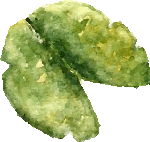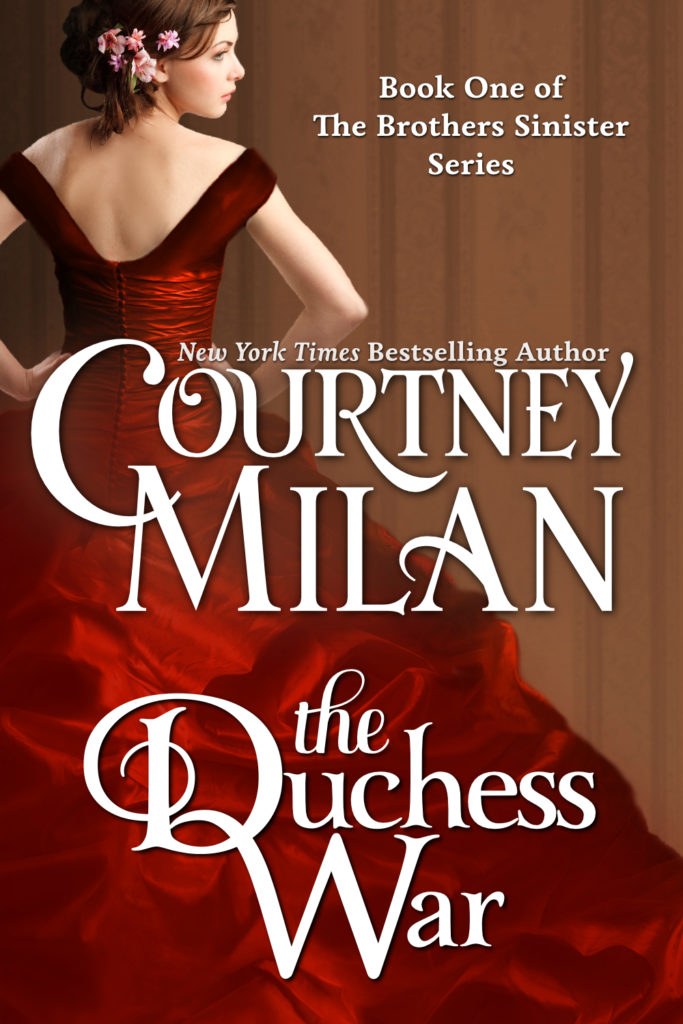Miss Minerva Lane is a quiet, bespectacled wallflower, and she wants to keep it that way. After all, the last time she was the center of attention, it ended badly—so badly that she changed her name to escape her scandalous past. Wallflowers may not be the prettiest of blooms, but at least they don’t get trampled. So when a handsome duke comes to town, the last thing she wants is his attention.
But that is precisely what she gets.
Because Robert Blaisdell, the Duke of Clermont, is not fooled. When Minnie figures out what he’s up to, he realizes there is more to her than her spectacles and her quiet ways. And he’s determined to lay her every secret bare before she can discover his. But this time, one shy miss may prove to be more than his match…
The Brothers Sinister Series Reading Order
2. The Heiress Effect | 3. The Countess Conspiracy | 4. The Suffragette Scandal | 4½. Talk Sweetly to Me
...or get all seven volumes in one boxed set
Awards
- RT Book Reviews Reviewers’ Choice Award for Best Self-Published Historical Romance


Reviews
“The Duchess War is lovely - smart, touching, funny, sexy, and dizzyingly romantic. Read it right away - yes, now. Everything on your to-do list can wait, believe me.”
—Carrie S., at Smart Bitches, Trashy Books
“[A] beautiful, heart breaking romance with humor, love and forgiveness written by one of the finest historical romance authors.”
—Lisa Wolff, at Rogues Under the Covers
“Milan is writing something much more important than ‘just’romance—she’s pushing the boundaries of the genre in interesting and surprising directions and she’s delving into all the other things that matter in our relationships with each other. She writes fully formed people who are complicated and weird and broken in unexpected ways—just like those of us who exist outside of books.”
—Natalie, at Radish Reviews
Code Name
All of my books get code names as I write them. Unfortunately, the code name for this book is a massive spoiler, and has to do with the heroine’s secrets. In this case, if you want to know the code name, you’ll have to read the author’s note at the end.
Excerpt
Leicester, November, 1863
Robert Blaisdell, the ninth Duke of Clermont, was not hiding.
True, he’d retreated to the upstairs library of the old Guildhall, far enough from the crowd below that the noise of the ensemble had faded to a distant rumble. True, nobody else was about. Also true: He stood behind thick curtains of blue-gray velvet, which shielded him from view. And he’d had to move the heavy davenport of brown-buttoned leather to get there.
But he’d done all that not to hide himself, but because—and this was a key point in his rather specious train of logic—in this centuries-old structure of plaster and timberwork, only one of the panes in the windows opened, and that happened to be the one secreted behind the sofa.
So here he stood, cigarillo in hand, the smoke trailing out into the chilly autumn air. He wasn’t hiding; it was simply a matter of preserving the aging books from fumes.
He might even have believed himself, if only he smoked.
Still, through the wavy panes of aging glass, he could make out the darkened stone of the church directly across the way. Lamplight cast unmoving shadows on the pavement below. A pile of handbills had once been stacked against the doors, but an autumn breeze had picked them up and scattered them down the street, driving them into puddles.
He was making a mess. A goddamned glorious mess. He smiled and tapped the end of his untouched cigarillo against the window opening, sending ashes twirling to the paving stones below.
The quiet creak of a door opening startled him. He turned from the window at the corresponding scritch of floorboards. Someone had come up the stairs and entered the adjoining room. The footsteps were light—a woman’s, perhaps, or a child’s. They were also curiously hesitant. Most people who made their way to the library in the midst of a musicale had a reason to do so. A clandestine meeting, perhaps, or a search for a missing family member.
From his vantage point behind the curtains, Robert could only see a small slice of the library. Whoever it was drew closer, walking hesitantly. She was out of sight—somehow he was sure that she was a woman—but he could hear the soft, prowling fall of her feet, pausing every so often as if to examine the surroundings.
She didn’t call out a name or make a determined search. It didn’t sound as if she were looking for a hidden lover. Instead, her footsteps circled the perimeter of the room.
It took Robert half a minute to realize that he’d waited too long to announce himself. “Aha!” he could imagine himself proclaiming, springing out from behind the curtains. “I was admiring the plaster. Very evenly laid back there, did you know?”
She would think he was mad. And so far, nobody yet had come to that conclusion. So instead of speaking, he dropped his cigarillo out the window. It tumbled end over end, orange tip glowing, until it landed in a puddle and extinguished itself.
All he could see of the room was a half-shelf of books, the back of the sofa, and a table next to it on which a chess set had been laid out. The game was in progress; from what little he remembered of the rules, black was winning. Whoever it was drew nearer, and Robert shrank back against the window.
She crossed into his field of vision.
She wasn’t one of the young ladies he’d met in the crowded hall earlier. Those had all been beauties, hoping to catch his eye. And she—whoever she was—was not a beauty. Her dark hair was swept into a no-nonsense knot at the back of her neck. Her lips were thin and her nose was sharp and a bit on the long side. She was dressed in a dark blue gown trimmed in ivory—no lace, no ribbons, just simple fabric. Even the cut of her gown bordered on the severe side: waist pulled in so tightly he wondered how she could breathe, sleeves marching from her shoulders to her wrists without an inch of excess fabric to soften the picture.
She didn’t see Robert standing behind the curtain. She had set her head to one side and was eyeing the chess set the way a member of the Temperance League might look at a cask of brandy: as if it were an evil to be stamped out with prayer and song—and failing that, with martial law.
She took one halting step forward, then another. Then, she reached into the silk bag that hung around her wrist and retrieved a pair of spectacles.
Glasses should have made her look more severe. But as soon as she put them on, her gaze softened.
He’d read her wrongly. Her eyes hadn’t been narrowed in scorn; she’d been squinting. It hadn’t been severity he saw in her gaze but something else entirely—something he couldn’t quite make out. She reached out and picked up a black knight, turning it around, over and over. He could see nothing about the pieces that would merit such careful attention. They were solid wood, carved with indifferent skill. Still, she studied it, her eyes wide and luminous.
Then, inexplicably, she raised it to her lips and kissed it.
Robert watched in frozen silence. It almost felt as if he were interrupting a tryst between a woman and her lover. This was a lady who had secrets, and she didn’t want to share them.
The door in the far room creaked as it opened once more.
The woman’s eyes grew wide and wild. She looked about frantically and dove over the davenport in her haste to hide, landing in an ignominious heap two feet away from him. She didn’t see Robert even then; she curled into a ball, yanking her skirts behind the leather barrier of the sofa, breathing in shallow little gulps.
Good thing he’d moved the davenport back half a foot earlier. She never would have fit the great mass of her skirts behind it otherwise.
Her fist was still clenched around the chess piece; she shoved the knight violently under the sofa.
This time, a heavier pair of footfalls entered the room.
“Minnie?” said a man’s voice. “Miss Pursling? Are you here?”
Her nose scrunched and she pushed back against the wall. She made no answer.
“Gad, man.” Another voice that Robert didn’t recognize—young and slightly slurred with drink. “I don’t envy you that one.”
“Don’t speak ill of my almost-betrothed,” the first voice said. “You know she’s perfect for me.”
“That timid little rodent?”
“She’ll keep a good home. She’ll see to my comfort. She’ll manage the children, and she won’t complain about my mistresses.” There was a creak of hinges—the unmistakable sound of someone opening one of the glass doors that protected the bookshelves.
“What are you doing, Gardley?” the drunk man asked. “Looking for her among the German volumes? I don’t think she’d fit.” That came with an ugly laugh.
Gardley. That couldn’t be the elder Mr. Gardley, owner of a distillery—not by the youth in that voice. This must be Mr. Gardley the younger. Robert had seen him from afar—an unremarkable fellow of medium height, medium-brown hair, and features that reminded him faintly of five other people.
“On the contrary,” young Gardley said. “I think she’ll fit quite well. As wives go, Miss Pursling will be just like these books. When I wish to take her down and read her, she’ll be there. When I don’t, she’ll wait patiently, precisely where she was left. She’ll make me a comfortable wife, Ames. Besides, my mother likes her.”
Robert didn’t believe he’d met an Ames. He shrugged and glanced down at—he was guessing—Miss Pursling to see how she took this revelation.
She didn’t look surprised or shocked at her almost-fiancé’s unromantic utterance. Instead, she looked resigned.
“You’ll have to take her to bed, you know,” Ames said.
“True. But not, thank God, very often.”
“She’s a rodent. Like all rodents, I imagine she’ll squeal when she’s poked.”
There was a mild thump.
“What?” yelped Ames.
“That,” said Gardley, “is my future wife you are talking about.”
Maybe the fellow wasn’t so bad after all.
Then Gardley continued. “I’m the only one who gets to think about poking that rodent.”
Miss Pursling pressed her lips together and looked up, as if imploring the heavens. But inside the library, there were no heavens to implore. And when she looked up, through the gap in the curtains…
Her gaze met Robert’s. Her eyes grew big and round. She didn’t scream; she didn’t gasp. She didn’t twitch so much as an inch. She simply fixed him with a look that bristled with silent, venomous accusation. Her nostrils flared.
There was nothing Robert could do but lift his hand and give her a little wave.
She took off her spectacles and turned away in a gesture so regally dismissive that he had to look twice to remind himself that she was, in fact, sitting in a heap of skirts at his feet. That from this awkward angle above her, he could see straight down the neckline of her gown—right at the one part of her figure that didn’t strike him as severe, but soft—
Save that for later, he admonished himself, and adjusted his gaze up a few inches. Because she’d turned away, he saw for the first time a faint scar on her left cheek, a tangled white spider web of crisscrossed lines.
“Wherever your mouse has wandered off to, it’s not here,” Ames was saying. “Likely she’s in the lady’s retiring room. I say we go back to the fun. You can always tell your mother you had words with her in the library.”
“True enough,” Gardley said. “And I don’t need to mention that she wasn’t present for them—it’s not as if she would have said anything in response, even if she had been here.”
Footsteps receded; the door creaked once more, and the men walked out.
Miss Pursling didn’t look at Robert once they’d left, not even to acknowledge his existence with a glare. Instead, she pushed herself to her knees, made a fist, and slammed it into the hard back of the sofa—once, then twice, hitting it so hard that it moved forward with the force of her blow—all one hundred pounds of it.
He caught her wrist before she landed a third strike. “There now,” he said. “You don’t want to hurt yourself over him. He doesn’t deserve it.”
She stared up at him, her eyes wide.
He didn’t see how any man could call this woman timid. She positively crackled with defiance. He let go of her arm before the fury in her could travel up his hand and consume him. He had enough anger of his own.
“Never mind me,” she said. “Apparently I’m not capable of helping myself.”
He almost jumped. He wasn’t sure how he’d expected her voice to sound—sharp and severe, like her appearance suggested? Perhaps he’d imagined her talking in a high squeak, as if she were the rodent she’d been labeled. But her voice was low, warm, and deeply sensual. It was the kind of voice that made him suddenly aware that she was on her knees before him, her head almost level with his crotch.
Save that for later, too.
“I’m a rodent. All rodents squeal when poked.” She punched the sofa once again. She was going to bruise her knuckles if she kept that up. “Are you planning to poke me, too?”
“No.” Stray thoughts didn’t count, thank God; if they did, all men would burn in hell forever.
“Do you always skulk behind curtains, hoping to overhear intimate conversations?”
Robert felt the tips of his ears burn. “Do you always leap behind sofas when you hear your fiancé coming?”
“Yes,” she said defiantly. “Didn’t you hear? I’m like a book that has been mislaid. One day, one of his servants will find me covered in dust in the middle of spring-cleaning. ‘Ah,’ the butler will say. ‘That’s where Miss Wilhelmina has ended up. I had forgotten all about her.’”
Wilhelmina Pursling? What a dreadful appellation.
She took a deep breath. “Please don’t tell anyone. Not about any of this.” She shut her eyes and pressed her fingers to her eyes. “Please just go away, whoever you are.”
He brushed the curtains to one side and made his way around the sofa. From a few feet away, he couldn’t even see her. He could only imagine her curled on the floor, furious to the point of tears.
“Minnie,” he said. It wasn’t polite to call her by so intimate a name. And yet he wanted to hear it on his tongue.
She didn’t respond.
“I’ll give you twenty minutes,” he said. “If I don’t see you downstairs by then, I’ll come up for you.”
For a few moments, there was no answer. Then: “The beautiful thing about marriage is the right it gives me to monogamy. One man intent on dictating my whereabouts is enough, wouldn’t you think?”
He stared at the sofa in confusion before he realized that she thought he’d been threatening to drag her out.
Robert was good at many things. Communicating with women was not one of them.
“That’s not what I meant,” he muttered. “It’s just…” He walked back to the sofa and peered over the leather top. “If a woman I cared about was hiding behind a sofa, I would hope that someone would take the time to make sure she was well.”
There was a long pause. Then fabric rustled and she looked up at him. Her hair had begun to slip out of that severe bun; it hung around her face, softening her features, highlighting the pale whiteness of her scar. Not pretty, but…interesting. And he could have listened to her talk all night.
She stared at him in puzzlement. “Oh,” she said flatly. “You’re attempting to be kind.” She sounded as if the possibility had never occurred to her before. She let out a sigh, and gave him a shake of her head. “But your kindness is misplaced. You see, that—” she pointed toward the doorway where her near-fiancé had disappeared “—that is the best possible outcome I can hope for. I have wanted just such a thing for years. As soon as I can stomach the thought, I’ll be marrying him.”
There was no trace of sarcasm in her voice. She stood. With a practiced hand, she smoothed her hair back under the pins and straightened her skirts until she was restored to complete propriety.
Only then did she stoop, patting under the sofa to find where she’d tossed the knight. She examined the chessboard, cocked her head, and then very, very carefully, set the piece back into place.
While he was standing there, watching her, trying to make sense of her words, she walked out the door.



